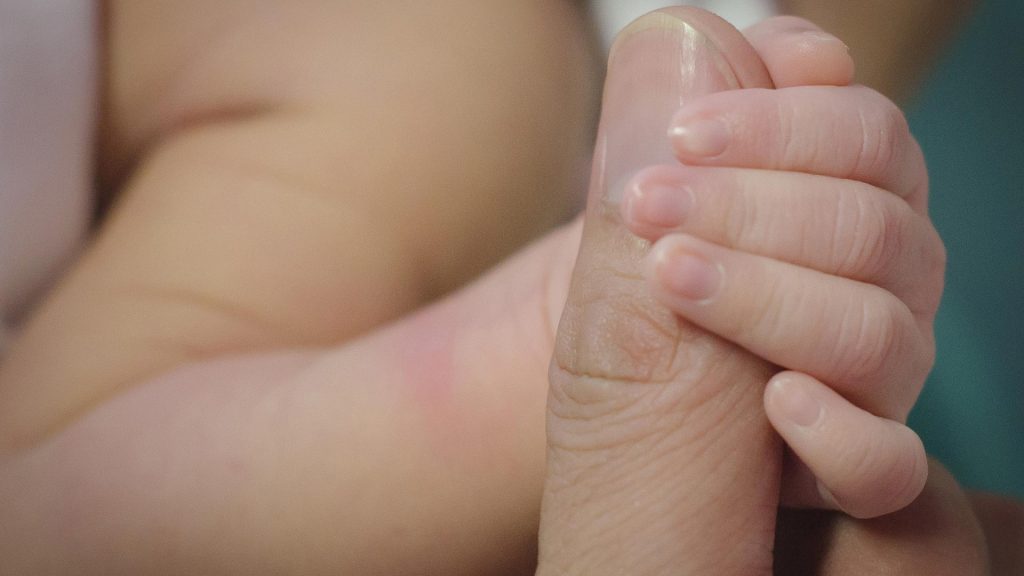
A number of provinces have put an end to birth alerts while others are reviewing the practice.
Several Canadian provinces are still issuing birth alerts, a practice that B.C. government lawyers have called “illegal and unconstitutional” and that advocates say constitutes “surveillance of families.”
Currently, Newfoundland and Labrador, Nova Scotia, New Brunswick, Saskatchewan and Quebec practice birth alerts.
In 2019, British Columbia, Alberta and the Yukon cancelled the practice, with Manitoba and Ontario following suit in 2020.
Prince Edward Island says it will end birth alerts by the end of this month. The Northwest Territories says birth alerts haven’t been practiced there for over a decade.
A “birth alert” or “hospital alert” is when a social worker flags an expectant parent to hospital staff without their consent, because they feel the parent may put their newborn at risk. The hospital then notifies the social worker when the baby is born. This practice sometimes results in child apprehension.
Irwin Elman, who was the Ontario advocate for children and youth before the office was shut down in November 2018, says birth alerts are a form of state surveillance and rest on a series of assumptions.
Birth alerts “are a tool of a child protection system that, in its DNA, has the policing and surveillance of families at the centre,” he tells IndigiNews.
“A birth alert, of course, starts with an assumption … that this parent cannot care for this child,” Elman says, and it assumes that a child is safest when separated from its parent.
Cindy Blackstock, executive director of the First Nations Child and Family Caring Society of Canada, says the effectiveness of birth alerts hasn’t been proven and the impacts need further study.
“There’s no evidence that they work or that they don’t work,” she says.
Read More:
B.C. ministry warned birth alerts ‘illegal and unconstitutional’ months before banning them
What is certain is that the driving factors that lead to child apprehensions are poverty, lack of housing, addiction and domestic violence, Blackstock says.
“If we’re able to really get at those root causes, we’ll be able to make a real difference in the lives of families, so that families are able to live better and children will be less at risk,” she says.
At best, ending birth alerts is a step toward dismantling a child welfare system that allows child apprehensions, not a solution, explains Elman via email.
“It is important that birth alerts were ended but they were merely one tool of a system built to police families not support them. At best the ending of birth alerts is a symbolic step unless that step leads to other steps to completely dismantle the current system to build again.”
Ontario
Ontario officially ended birth alerts in October 2020.
Elman says the province did not collect centralized data about birth alerts, so he doesn’t know how many families were subjected to them.
Even in places where birth alerts have officially stopped, newborns are still being removed from their parents in hospital, Elman says.
“The end to birth alerts in Ontario didn’t end children of that age coming into care,” says Elman.
“If a worker knew of a case and was worried that about a child that worker could still talk to the hospital.”
The Associate Minister of Children and Women’s Issues Jill Dunlop announced on July 14, 2020 that between July 2018 and 2019, 442 children were apprehended between seven days and 12 months of being born. Fifty per cent of those referrals came from medical staff.
Quebec
Birth alerts are still being used in Quebec and social workers have been using them since 2009 according to a spokesperson for the province’s Ministry of Health and Social Services.
However, the ministry says it has programs to support expectant parents, and that these support programs help prevent a birth alert or child apprehension in family situations that it deems to have “risk factors.”
IndigiNews reached out to Suzanne Arpin, Quebec’s child and youth advocate, with an interview request, and asked why the province allows them, who’s affected by them and what their impact is.
In an email, a spokesperson for Arpen says she was declining the interview because “we have not been seized of this issue and have not studied it.”
Manitoba
In Manitoba, birth alerts were officially eliminated in July 2020. In an announcement, the Department of Families says it was replacing birth alerts with “voluntary prenatal engagement and early intervention planning with high-risk expectant parents.”
However, apprehensions of newborns in the hospital still persist. In November 2020, for example, a newborn was taken from its parents after a nurse alleged a father used the word “shake” while consoling his baby, according to APTN News.
The father said he was talking quietly to the baby assuring him dad would rock him to console him. As of the baby’s one month birthday, it had not been returned to the parents.
IndigiNews reached out to the Manitoba Advocate for Children and Youth, Daphne Penrose, to ask about the incident and the lasting impacts of birth alerts, but she didn’t reply.
Atlantic provinces
In Nova Scotia, New Brunswick and Newfoundland and Labrador birth alerts have not been banned but government spokespeople say they are currently under review.
A representative for Nova Scotia’s Department of Community Services, which oversees child protection, says its legislation allows the province to issue birth alerts when an expectant parent who “may need our help” hasn’t voluntarily signed up for the province’s family supports such as counseling and parenting programs.
However, due in part to new federal legislation passed last year, Nova Scotia is reconsidering the practice. The Act respecting First Nations, Inuit and Métis children, youth and families, requires provincial and territorial governments to focus on prenatal and preventive services for Indigenous families, a fact that Nova Scotia says it’s taking into consideration.
In New Brunswick, a spokesperson for the Ministry of Social Development says in an email that it didn’t have “statistics readily available” when asked about the status of birth and hospital alerts in the province.
The ministry would not say when the province first implemented birth alerts, but says that it did so as a result of a recommendation from New Brunswick’s Coroners Services’ Child Death Review Committee. As of January 2021, the practice is “part of a current review of the child protection legislation.”
In Newfoundland and Labrador, a spokesperson for the Ministry of Children, Seniors and Social Development says in an email that the practice of sending birth alerts to hospitals is “currently under review” as a result of recommendations in the Truth and Reconciliation Commission and the MMIWG Inquiry.
A spokesperson for P.E.I.’s Ministry of Social Development and Housing says that it took note of other provinces banning the practice in 20201, which triggered an internal review of its own practices. The province has committed to fully banning birth alerts by the end of Jan. 2021.
The Territories
Yukon “officially discontinued” the practice in 2019, noting in an annual report that “the last time a child was taken into care after a ‘birth alert’ in Yukon was in 2017.”
According to a spokesperson for the Northwest Territories, birth alerts haven’t been a practice there for over a decade.
A spokesperson from the government of Nunavut did not reply to IndigiNews requests for information.
Alberta and Saskatchewan
According to a spokesperson from the government of Alberta, the province ended birth alerts in 2019, but they remain a practice next door in Saskatchewan
According to a representative from the government of Saskatchewan “supporting mothers to care for their children is a priority and removal of a child at birth is an absolute last resort and only occurs when (the) safety of a child cannot be ensured.”
Last year, the Saskatchewan Ministry of Social Services held community consultations about the practice. Its “next steps are to take what [they] have heard and use that information to determine a better way forward.”
Beyond birth alerts
Lawyers have said that birth alerts could be challenged in court either through a charter challenge or under privacy laws. They also say that it could be grounds for a class-action lawsuit.
Aside from seeking compensation, advocates are also encouraging a massive systemic change in the child welfare system, beyond banning birth alerts.
“I don’t believe this quick win of just ending birth alerts and then announcing it and saying, ‘okay, we’ve done something tremendous,’ has really changed anything, Elman says.
“It needs more fundamental system change that people have been calling for, including me, for years. “











